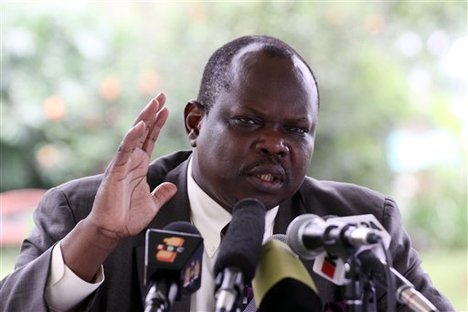
Two months into the post-referendum period, and just four months until Sudan splits, the list of contentious issues the North and South need to work through isn’t getting any shorter. Rather, presidential level talks mediated by the African Union high-level panel were called off this week as the southern ruling party unveiled a collection of documents it says prove the National Congress Party is backing of southern militias.
The allegations were particularly grievous coming as they did during a weekend of heavy fighting in and around Malakal, the capital of the southern border state of Upper Nile. The SPLM’s documents, which were widely circulated in Arabic, allegedly show that the northern government began providing arms to militia leader George Athor a month after he lost the election for Jonglei governor. The documents also appear to show northern military support for opposition leader Lam Akol, who was previously aligned with Khartoum. Athor’s sphere of operation, and Akol’s support base, surround Malakal. The correspondence between NCP ministers, security officials, and intelligence agents pertains to the arming of “friendly forces” between 2009 and 2011, according to translations in media reports.
Media covering the release of the SPLM’s documents emphasized that authenticity could not be independently verified, but Sudan scholar Eric Reeves urged people to take a close look at the documents and the allegations. He asserted that the army officers who leaked the documents were executed.
If the international community will simply look honestly at the evidence in hand and at the record of pronouncements by the SPLM and the NIF/NCP regime, assessing the authenticity of the documents released today is hardly a strenuous exercise. (…) Insofar as the international community—including the African Union, the UN, the EU, and the United States—wishes to aid in negotiations in bringing the present dangerously tense situation to resolution, it must accept that there are not two truths being told today—only one.
NCP officials sought to discount the allegations by dismissing the documents as forgeries and portraying SPLM leader Pagan Amum as trying to stir up trouble.
“They will come back,” said former northern intelligence chief Salah Gosh of the SPLM’s announcement that it would suspend talks on post-CPA arrangements with the NCP.
Meanwhile, lead mediator Thabo Mbeki shuttled between capitals, meeting with leaders and urging them back to the table. The U.S., UK, and Norway, guarantors of the Comprehensive Peace Agreement, jointly called for UNMIS to investigate “serious” allegations of the use of proxy militias. But given the short timeframe between now and independence, the Troika emphasized that talks between the two presidents must continue. “In this sensitive period, it is critical that the NCP and SPLM maintain their dialogue and make further progress toward the creation of sustainable economic, political, and security arrangements between the two parties,” the Troika said in a statement.
There are indications that Presidents Bashir and Kiir may meet tomorrow to take up Abyei and border demarcation, but many other questions about how the two separate states will interact remain unanswered.
Lilian Riziq, a civil society leader in southern Sudan, told Enough that she is frustrated by the lack of urgency demonstrated by Sudan’s leaders to address issues that will have an impact on peoples’ everyday lives, such as citizenship. “We keep talking about politics – the NCP wants this, the SPLM wants that. But what we are missing here is that there are real people involved,” she said. “So many people’s lives depend on these decisions, and July 9th might change their lives completely.”
Photo: SPLM Secretary-General Pagan Amum (AP)

